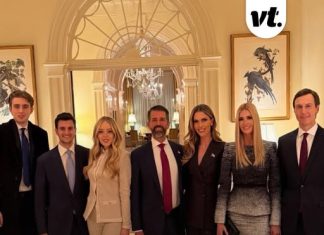A Secret Service employee has been placed on administrative leave following remarks made about Charlie Kirk after his death. The agent, Anthony Pough, shared a post on Facebook that many considered offensive, especially given the timing of Kirk’s assassination. The Secret Service emphasized that behavior violating its code of conduct will not be tolerated.
Comments That Sparked Outrage
In his post, Pough blamed Kirk’s death on “karma,” writing: “If you are Mourning this guy .. delete me. He spewed hate and racism on his show … At the end of the day, you answer to GOD and speak things into existence. You can only circumvent karma, she doesn’t leave.” These statements triggered strong backlash across social media and prompted swift disciplinary action.

What Happened to Charlie Kirk
Charlie Kirk, aged 31, was speaking during a Turning Point USA event when he was shot in the neck. He was rushed to hospital but later died from his injuries. He had been a high-profile conservative commentator and co-founder of the organization, which advocates conservative views on college and university campuses. His death led to widespread mourning and intense debate about political discourse and public safety.
Internal Response from the Agency
After Pough’s post became public, the Secret Service launched an internal review. An agency representative commented that the individual has been placed on leave during the investigation. The spokesperson underlined that employees are held to a high standard of conduct, especially those in positions of public trust.
The Problem with “Karma” in Public Commentary
Invoking “karma” in connection with violence is controversial. Many saw Pough’s remarks as implying that Kirk somehow deserved what happened because of his public statements and political views. Critics argue this kind of language risks dehumanizing individuals and normalizing narratives that assign blame before any legal process. Supporters of free speech note the tension between expressing personal beliefs and maintaining professionalism, especially when one works for a federal law enforcement agency. When public servants comment on political violence, their words carry weight and the potential to influence public perception.
Reactions Across Social Media
Social media response was swift and polarized. Some users expressed outrage, saying the comments were insensitive, inappropriate, or even complicit. Others defended Pough’s right to free expression and moral judgment, arguing that criticizing public figures—especially those who are divisive—is part of civic discourse. Media outlets picked up the story, discussing not only the remarks themselves but the broader implications: how public servants should behave, what happens when political beliefs intersect with public duty, and whether people in security roles have additional responsibilities in speech.
Legal and Ethical Dimensions
While speech is generally protected under free speech principles, there are ethical and sometimes legal limits, especially for government employees. Officials often must adhere to policies about conduct, especially with regard to impartiality, professionalism, and avoiding statements that could compromise public trust. The Secret Service’s move to place Pough on leave signals that internal rules or ethics policies may have been breached. It remains to be seen how the investigation unfolds, what disciplinary action will follow, and whether this incident will lead to review of guidelines related to social media use and public commentary by agents.

Moving Forward
In the wake of this controversy, attention has turned to how institutions balance employee rights with organizational values. There’s a growing call for clearer policies regulating speech by public servants, especially in moments of national trauma or controversy. Also under discussion: how organizations can support reparative actions when words cross perceived lines. Above all, many observers hope that Kirk’s death will prompt reflection—not just about the tragedy itself, but about the tone of political dialogue. As the investigation into Pough continues, one central question remains: how to uphold freedom of expression while maintaining respect, sensitivity, and accountability in the public sphere.

















